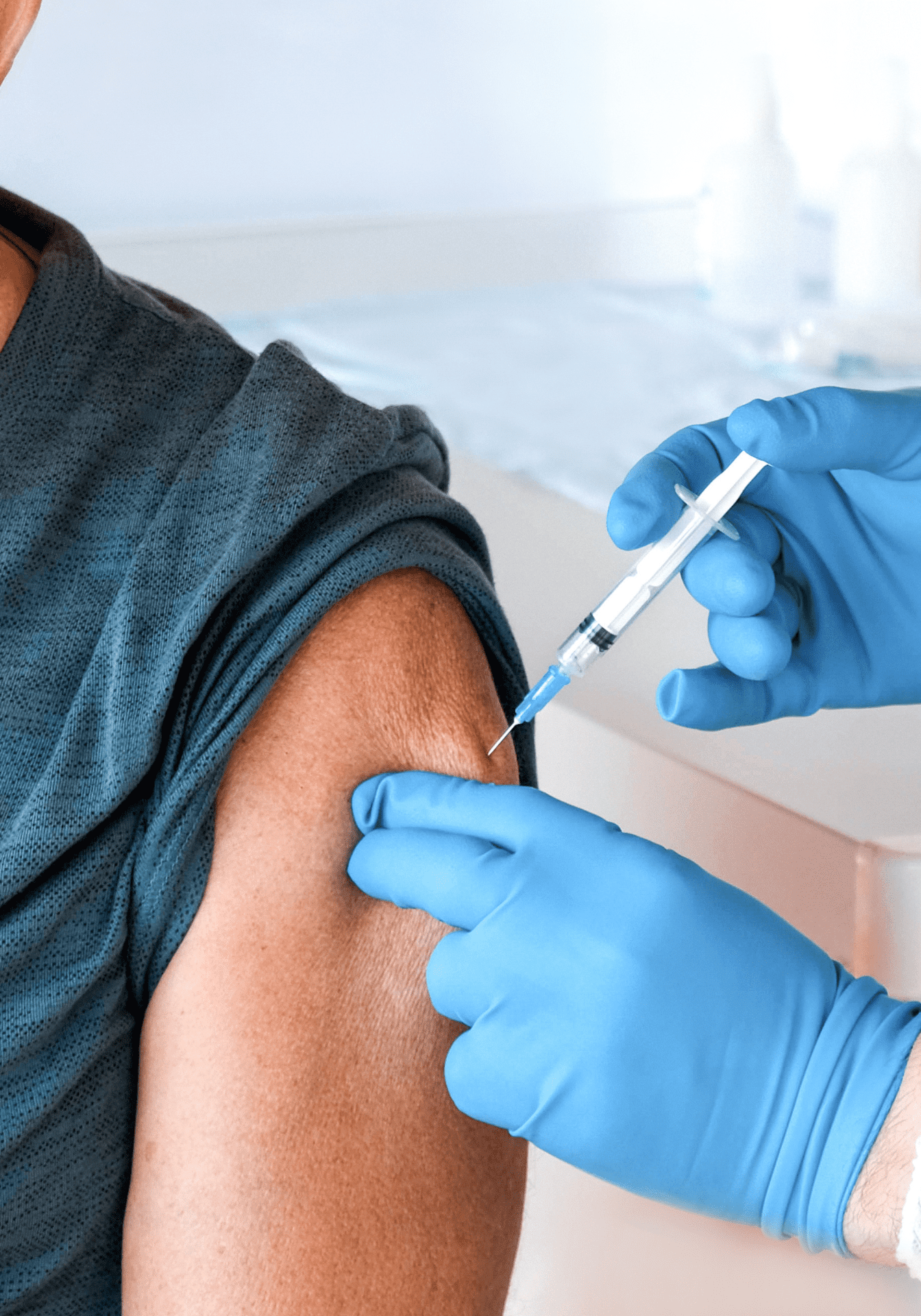Emerging Health Threats
Stay informed about emerging diseases affecting our communities in Van Buren and Cass Counties.
Predominant Diseases
Early detection and prevention are key to protecting your health and the health of your family. Below are some of the predominant diseases we monitor and are addressing in Van Buren and Cass Counties.

Infectious Diseases
Mpox (Monkeypox)
Mpox (Monkeypox/MPV): What You Need to Know
Mpox, also called monkeypox or MPV, is a rare viral illness. It spreads through close contact with bodily fluids, mpox rashes, or lesions.
Who Is at Risk?
The risk of mpox is low for most people. Anyone can get mpox through close contact with an infected person, but recent U.S. cases are mainly among young men who have sex with men.
If exposed or if you have symptoms, contact a healthcare provider right away.
How Does Mpox Spread?
Mpox spreads through:
- Direct contact with rashes, sores, or bodily fluids.
- Intimate contact, including sex, hugging, or prolonged face-to-face contact.
- Shared items like clothing or bedding (low risk).
Mpox is not as contagious as COVID-19 and doesn’t spread through casual contact.
Symptoms of Mpox
Mpox symptoms appear 3–17 days after exposure and include:
- Flu-like symptoms: fever, headache, swollen lymph nodes, and exhaustion.
- A rash or sores, often near the genitals or anus, but also on the hands, feet, or face.
The illness lasts 2–4 weeks. Mpox is contagious until all sores heal, scabs fall off, and new skin forms.
Is Mpox Serious?
Most cases resolve without treatment. However, severe illness can occur in:
- Young children.
- Pregnant individuals.
- People with weakened immune systems or eczema.
Testing for Mpox
To test for mpox, a healthcare provider swabs the sores and sends the sample to a lab.
Treatment and Vaccines
- Treatment: No specific cure, but antiviral medication may help. Most people recover in 2–4 weeks.
- Vaccines: Vaccines can prevent mpox. If given within 4 days of exposure, vaccines may stop illness.
What to Do if Exposed or Diagnosed
- Avoid close contact with others, including pets.
- Contact a healthcare provider or your local health department.
For guidance, see:
Influenza - Flu
Frequently Asked Questions
Can I get a COVID-19 vaccine at the same time as my flu vaccine?
- Yes! Both vaccines can be given together.
When is the best time to get a flu vaccine?
- Get Vaccinated Early: As soon as possible, ideally by the end of October.
- Peak Season: Flu typically peaks in February and can last into May.
- Antibodies: Takes about two weeks after vaccination for protection to develop.
Is the flu vaccine your best protection against the flu?
- Recommendation: Everyone aged 6 months and older needs an annual flu vaccine.
- COVID-19 Context: Widespread vaccination helps reduce flu spread and severity.
Rabies
Animal Bites & Rabies: Protect Yourself and Your Pets
Rabies is a serious threat in Michigan, especially during warmer months. Learn how to stay safe, protect your pets, and what to do if bitten.
Prevent Rabies: Key Tips
- Avoid Wildlife: Bats, raccoons, skunks, and foxes are common rabies carriers. Avoid contact and teach children to steer clear.
- Vaccinate Your Pets: Ensure pets are up to date on rabies vaccinations to protect them and reduce your exposure risk.
- Stay Informed: Learn about rabies and Michigan wildlife activity.
Learn More About Rabies | Michigan’s Bats Information
Report Animal Bites
Animal bites must be reported immediately to prevent rabies.
- Download the Animal Bite Reporting Form here.
- Fax Completed Forms:
- Van Buren County Public Health Nursing: (269) 621-2725
- Van Buren County Animal Control: (269) 657-7207
- Cass County Public Health Nursing: (269) 782-0121
- Cass County Animal Control: (269) 445-5018
Report Sick or Dead Wildlife
Help protect Michigan’s wildlife and prevent disease spread.
- Call Michigan DNR: (517) 336-5030
- Report Online: Eyes in the Field Website
Rabies Exposure Protocols
Understand what to do if exposed to rabies.
- Human Rabies PEP: Details Here
- Animal Rabies Protocols: Details Here
- Vaccine Information Sheets:
Contact Us
- Van Buren County: (269) 621-3143
- Cass County: (269) 782-0064
Additional Resources
- Michigan Rabies Information
- CDC Rabies Information
- Rabies Status by Country: A global assessment tool for travelers and pet importers.
COVID-19
Get the Latest COVID-19 Vaccine (2024–2025)
The new COVID-19 vaccine is now available at VBCDHD.
Free COVID-19 Test Kits and Masks
Pick up free at-home COVID-19 test kits and masks at both office locations.
Schedule Your COVID-19 Vaccine Appointment
Call (269) 740-4155 to schedule your vaccine appointment today.
Clinic Locations and Hours
Lawrence Clinic
260 South St., Lawrence, MI 49064
Open Thursdays:
- 9:00 AM to 11:00 AM
- 1:00 PM to 4:00 PM
Dowagiac Clinic
302 South Front St., Dowagiac, MI 49047
Open the first and third Wednesdays:
- 9:00 AM to 11:00 AM
- 1:00 PM to 4:00 PM
Essential COVID-19 Resources
- General Information: Michigan.gov/Coronavirus | CDC.gov/Coronavirus
- MDHHS update (May 11, 2023): The federal Public Health Emergency has ended.
Featured Topics
Stay informed about current outbreaks affecting Van Buren and Cass County, as well as national public health alerts. Our team monitors emerging health concerns to provide accurate information and resources to protect our community.
Current Topics
- Respiratory Illnesses: Track updates on COVID-19, RSV, and seasonal flu. Read More
- Foodborne Illnesses: Learn about recent recalls and safety tips to prevent food-related illnesses. Read More
- Vector-Borne Diseases: Stay alert to mosquito and tick-borne diseases, such as Lyme disease and West Nile virus. Read More

Contact Our Team
For information, assistance, or to report a serious disease or unusual cluster, reach out to:
Diana Baker, RN
Public Health Nurse, Cass County
Phone: (269) 782-0064 ext. 2015
Email: dbaker@vbcassdhd.org
Julie Beeching, RN, BSN
Director of Nursing, Van Buren County
Phone: (269) 539-5501
Email: jbeeching@vbcassdhd.org

